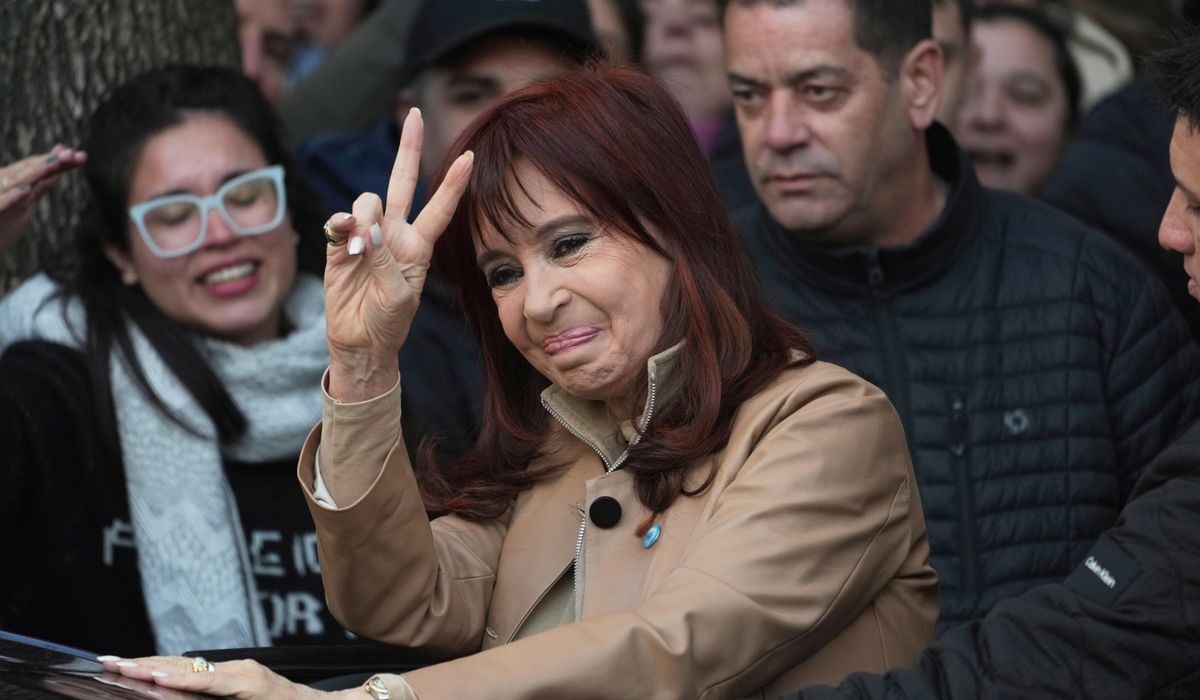


BUENOS AIRES — Argentina’s Supreme Court on Tuesday upheld the 6-year prison sentence on corruption charges for former President Cristina Fernández, a ruling she quickly rejected.
The court ruling would also disqualify the leader of South American country’s opposition movement, known as Peronism, from holding public office. It left Fernández, one of Argentina’s most important political figures of the past two decades, at the brink of an arrest by authorities.
Fernández governed for eight years after succeeding her husband in 2007. Under her watch, Argentina became notorious for its unbridled state spending and massive budget deficits. She was found guilty by a federal court in 2022 of having committed a millionaire fraud during her presidency through irregular allocation of state funds to a businessman close to her.
Fernández had asked the court for a review of the prison sentence in March, which three judges of the high court rejected. Tuesday’s court decision means that Fernández will not be able to compete in September for a seat in the legislature in the country’s capital, as she had announced.
The sentence “does nothing more than to protect our republican and democratic system,” the court wrote in a resolution provided to The Associated Press.
As the ruling was announced, supporters of Fernández and her political movement blocked main roadways into Buenos Aires.
Fernández quickly denounced the decision, calling the court justices “puppets” of those wielding economic power in the country.
“They’re three puppets answering to those ruling far above them,” she told supporters outside her party’s headquarters in the capital. “It’s not the opposition. It’s the concentrated economic power of Argentina’s government.”
Argentina’s far-right President Javier Milei celebrated the ruling, writing in a post on X: “Justice. Period.”
The ruling dealt a blow to Fernández’s political movement. She said the day before that even if she is in jail, Peronism will live on in resistance to Milei, whose austerity measures stand in stark contrast to the policies implemented during her leadership.
Gregorio Dalbón, one of Fernández’s legal representatives, said that “we are going to take this case to all international human rights organizations: the Inter-American Commission and Court, the UN Human Rights Council” and more.
The court case, which began in 2016, centered on 51 public contracts for road works under Fernández and her late husband, former President Néstor Kirchner. The contracts were awarded to companies linked to Lázaro Báez, a convicted construction magnate and friend of the presidential couple, at prices 20% above the standard rate.
According to the court, the governments carried out “an extraordinary fraudulent maneuver” that harmed the interests of the government and resulted in the embezzlement of roughly $70 million, at the current exchange rate.
Fernández has questioned the impartiality of the judges and claimed that much of the evidence was gathered outside legal deadlines and that her legal defense didn’t have access to it. Fernández also faces a number of other upcoming trials on corruption charges.
Associated Press journalists Almudena Calatrava y Débora Rey contributed to this report from Buenos Aires.
Follow AP’s coverage of Latin America and the Caribbean at https://apnews.com/hub/latin-america
